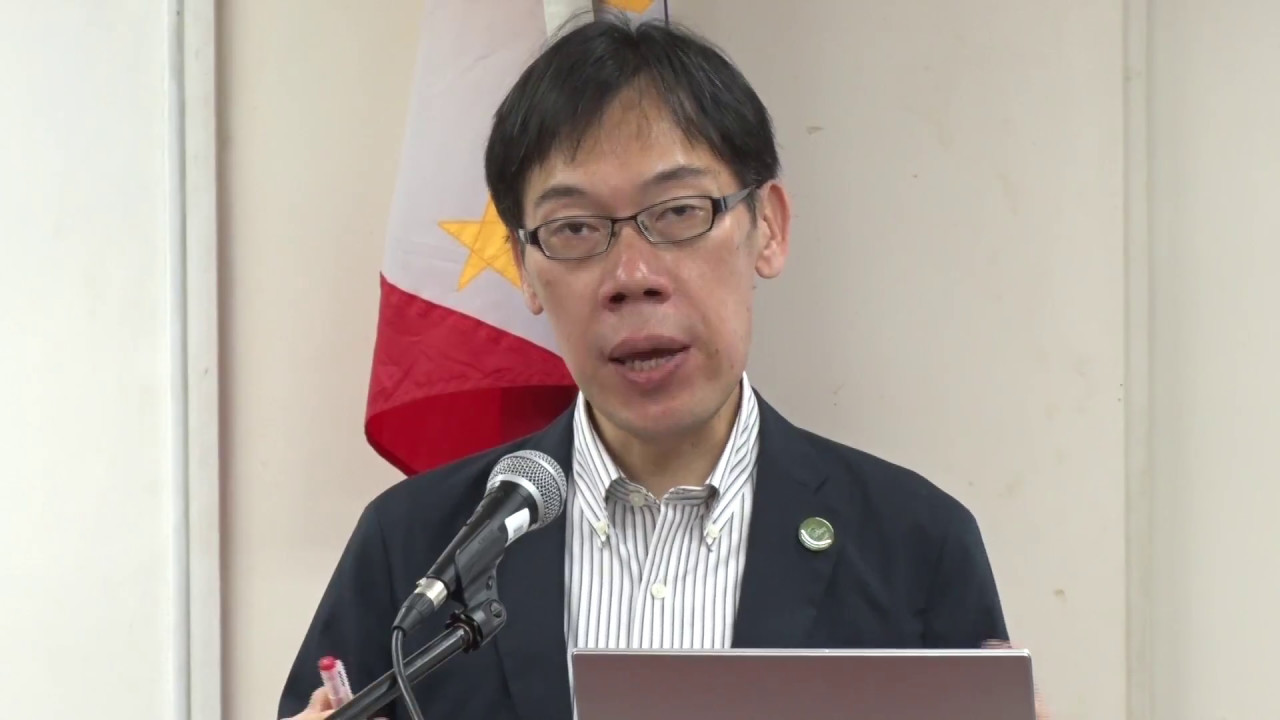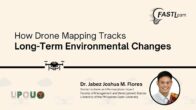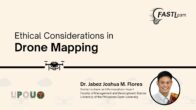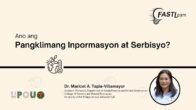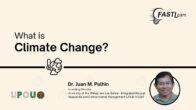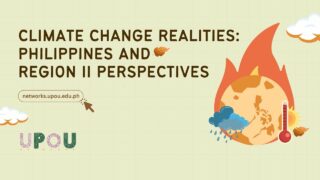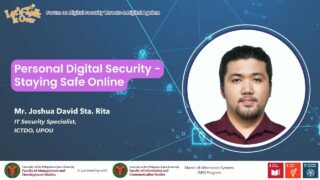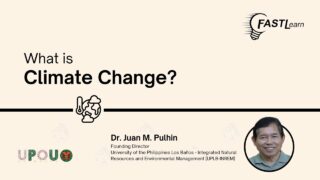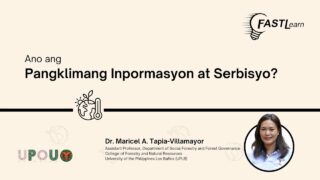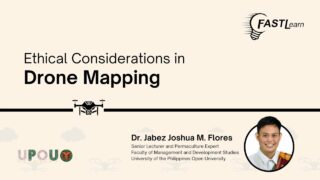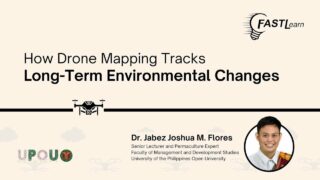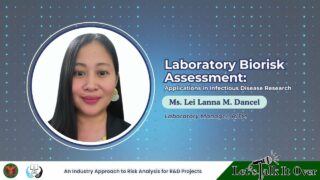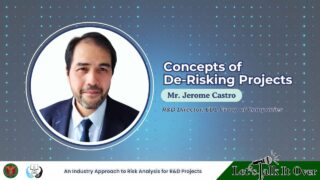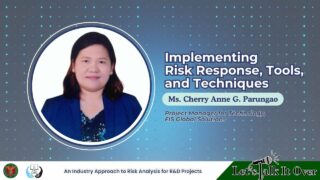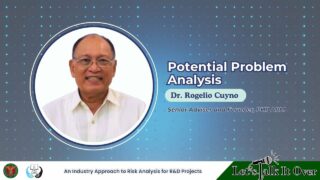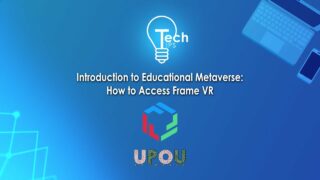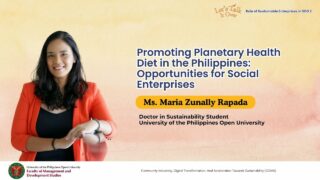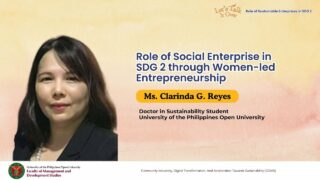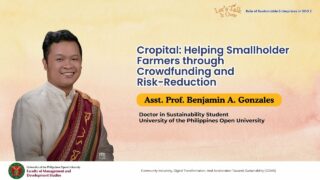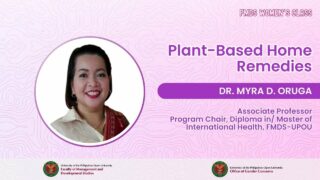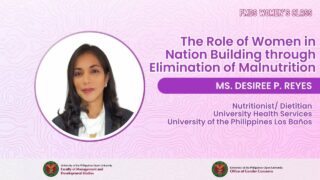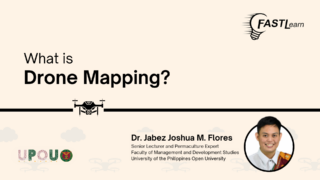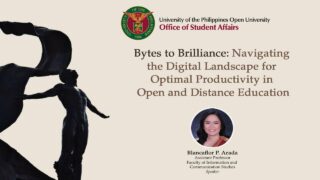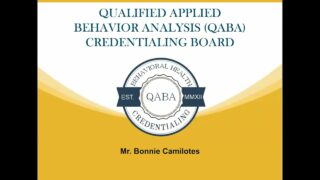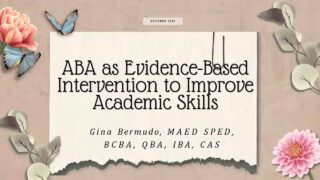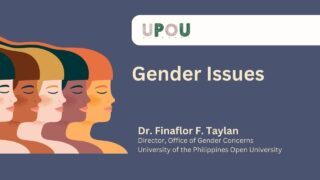The Faculty of Management and Development Studies (FMDS) of UP Open University (UPOU) conducted a Round Table Discussion on Sustainability Perspectives on 18 April 2017 at the UP Open University Headquarters, Los Banos, Laguna to advance sustainable science as a vital component in achieving sustainable development.
In his welcome message, Dr. Primo G. Garcia, Dean of FMDS, said that sustainable development is a “global concept anchored on sustainability which takes into account the well-being of future generations.” Given the complexities of sustainability as an area of inquiry as well as a field of endeavor, he added, it is important to explore the concept from the scientific, philosophical and social movement perspectives.
Dr. Osamu Saito from the United Nations University Institute for the Advanced Study of Sustainability (UNU-IAS) shared his expertise on sustainability from the point of view of the natural sciences. Dr. Saito presented a definition of sustainability science as an interdisciplinary approach that connects basic and applied research towards providing a solution to a problem. He enumerated notable publications in ecosystem, biodiversity and natural resources management which have dominated research in sustainable science. He said that fewer studies were done on sustainable urban and rural planning as well as architectural design innovation.
Dr. Saito also explained that sustainability science is concerned with examining the interaction between society and nature and is best approached through problem driven and problem solving methods, multi criteria assessment and systems approach, multi-, inter-, or transdisciplinary characteristics and adaptive management and social learning which are also adopted in other fields but are particularly vital for sustainability science. According to him, the key to further strengthening and promoting sustainability science is through integration, cooperation and collaboration between scientists and practitioners. This entails developing a relationship between science and society wherein research goes beyond scientific inquiry to include co-creation of knowledge for action.
Moving from the natural science perspective, the round table discussion tackled sustainability from a philosophical point of view with Dr. Richard Bawden of Western Sydney University doing his presentation via videoconferencing. Dr. Bawden opened his presentation by highlighting the importance of surfacing our philosophical assumptions about sustainability as well as practices of sustainable development. He suggested that if we are to pursue sustainability, we need to examine first our currently held beliefs and assumptions about the nature of sustainability because these would influence how we treat our research and actions towards it. The biggest challenge in promoting sustainability according to him is the lack of worldview consciousness, appreciation and transformation.
The last perspective to be discussed was sustainability from the social movement perspective by Dr. Alexander Flor, Dean of UPOU’s Faculty of Information and Communication Studies (FICS). Dr. Flor traced the origin of sustainability from the “baby boomer” generation which questioned the narrow focus on economic growth and science at that time. From the Cartesian-Newtonian science perspective, scientific knowledge is seen as a tool to make humankind masters of nature where nature is a mechanical system that can be manipulated and exploited. This perspective is viewed by the sustainability movement as an antithesis to sustainability. An alternative to this view is a systems model that includes economic, social and environmental values. Sustainability from the social movement perspective inspired the contemporary discourse on sustainability advanced by the United Nations and the more progressive bilateral agencies.
The round table discussion was wrapped up by Dr. Jean A. Saludadez, Vice Chancellor for Finance and Administration of UPOU. The outputs and insights from the activity will be used for the improvement of the proposed PhD program in Sustainability Science in terms of its nature, intent, as well as current and future directions. FMDS’ thrust, courses and programs are geared towards the promotion of sustainable development in our communities (Paula Grace Muyco).
